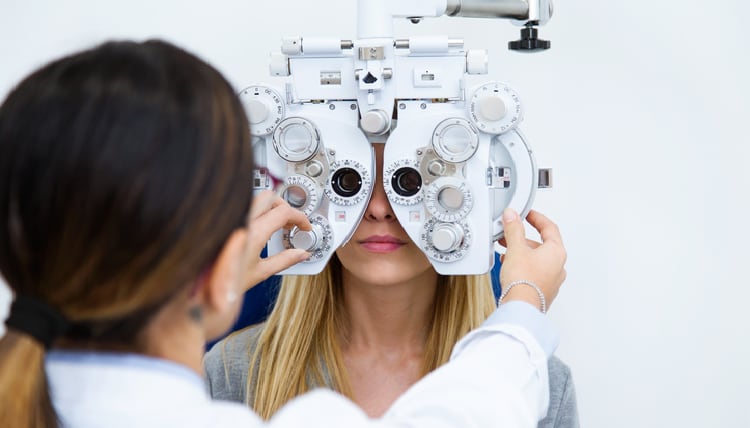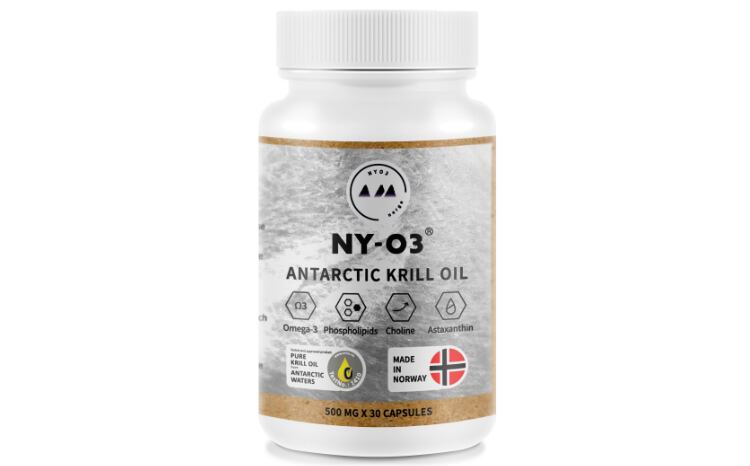This is according to an online survey which took place in last June to October.
The analysis of the results submitted by 206 optometrists were recently published in Nutrients. The study focused on the optometrists from Australian (64%) and New Zealand (36%).
The researchers from the University of Melbourne and the University of Auckland believe that this is the study on clinicians’ awareness and professional practices relating to omega-3 fatty acids recommendations.
Findings showed that eight in 10 of them (79%) have recommended omega-3 rich foods or supplements to their patients to improve their eye health.
For these optometrists, most (78%) will recommend omega-3 supplements to patients suffering from dry eye disease (DED), while a lesser proportion (62%) will do so for patients suffering from age-related macular degeneration (AMDs).
For managing DED, the most recommended omega-3 supplements were products from marine-based sources (40%). Plant-based sources were recommended by 29% of them, another 29% recommended a combination of long and short chain omega-3 fatty acids, while 14% recommended omega-3 and omega-6 fatty acids products.
Thera Tears capsules by Akorn Consumer Health and Lacritec from Stiltec were the most popular brands recommended for managing DED.
Information on the company’s website showed that Thera Tears consists of fish oil, flaxseed oil, and mixed tocopherols.
Lacritec capsules, on the other hand, contain flax seed oil and omega fatty acid gamma linoleic acid (GLA) which comes from the seeds of the borago officinalis plant.
As for managing AMDs, the more common brands recommended were Macutec from Stiltec, Macu-vision from Blackmores, and MD Eyes from MD EyeCare.
However, a check on the products website showed that most of these products are mostly rich in vitamins C, E, and zinc instead of omega-3. This is except for Macutec which has a version with omega-3 added, while MD Eyes also has lutein and zeaxanthin added.
Reasons for not making recommendations
Lack of knowledge on omega-3 was the most-cited reason for optometrists who did not make any related dietary recommendations.
Almost half (47%) of those who did not make the recommendation said they did not know enough about omega-3 fatty acids.
Thirteen said there were insufficient published research evidence on omega-3 and its benefits for eye health.
Seven reported that their patients had considered nutritional advice to be outside the scope of optometric practice.
Three said they were aware of published evidence which showed omega-3 acids were not beneficial for ocular health, while four said they have stopped making the recommendations as they did not see improvements in their patients, or new evidence had changed their opinions on omega-3 use.
Dosage amounts
For optometrists who recommended omega-3 intake, only a-third will specify the dosage amount.
For those who recommended omega-3 for managing AMD, 29% specified the dosages, which ranged from 250mg to 5,000mg per day.
For managing DED, 31% made dosage recommendations which ranged from 250mg to 6,000mg per day.
Equipped with the right knowledge?
The study found that there is a need to improve optometrists’ knowledge about omega-3 use.
Half of them were not aware of the differences between the biological effects of plant-based and marine-based omega-3 fatty acids.
Less than half (42%) correctly responded that omega-6 fatty acids are pro-inflammatory.
When it comes to the ideal ratio of omega-3 to omega-6 intake, only 16% correctly selected the ideal ratio of 1:4. Nearly one in three (27%) answered it wrong and 39% were unsure.
On the other hand, 46% said they would consider the possible contraindications of use, such as whether the patients were taking anti-coagulant medications or whether they were allergic to seafood and fish, before recommending omega-3 intake.
Over half of them also believed that omega-3 intake would produce side effects such as gastric reflux, nose bleeds, and bloating.
Sources of info
Education conferences and articles were the main sources of information to guide the optometrists’ decision for recommending omega-3 consumption.
Four in five of them rely on such conferences or articles, whereas information from product manufacturers and clinical guidelines ranked the lowest.
Optometrists who declared a clinical interest in DED or ocular surface disease were twice as likely to recommend omega-3 fatty acids consumption to their patients.
Omega-3 fatty acid intake is thought to reduce DED symptoms by modulating the ocular surface inflammation and improving the tear-lipid profiles.
However, the researchers pointed out that a Cochrane review by Downie last year concluded that there was inconsistent evidence on the benefits of omega-3 benefits in managing DED.
The way forward
Moving forward, the researchers said future education for the optometrists could aim to improve their knowledge on whole foods and supplement sources of omega-3 fatty acids.
They also called for future research to address uncertainties in the evidence regarding optimal omega-3 dosage and formulation composition in DED.
Source: Nutrients
Omega-3 Fatty Acids and Eye Health: Opinions and Self-Reported Practice Behaviors of Optometrists in Australia and New Zealand
DOI: https://doi.org/10.3390/nu12041179
Authors: Downie and et al





